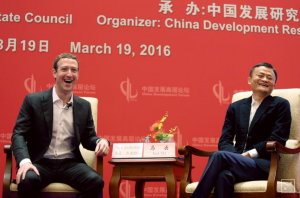Facebook is in trouble, again. The Federal Trade Commission, along with a coalition of 48 states and districts led by the New York Attorney General, announced on Wednesday two antitrust lawsuits against the social media giant, accusing it of sustaining its personal social networking monopoly through a years-long strategy of conduct designed to eliminate competition.
The suits seek remedies that could include forcing the sell-off of WhatsApp and Instagram. Facebook purchased Instagram for $1 billion in 2012 and WhatsApp for $19 billion in 2014 instead of creating its own competitive products. New York Attorney General Letitia James noted in a press conference that "It's really important that we block this predatory acquisition of companies and that we restore confidence to the markets," saying Facebook "used its monopoly of power to crush smaller rivals and snuff out competition, all at the expense of everyday users."
Instagram and WhatsApp are among approximately 70 companies purchased by Facebook over the last 15 years. Of Instagram and WhatsApp, CEO Mark Zuckerberg initially said each would operate independently. This is clearly not the case, as they have become increasingly symbiotic, offering users the ability to link accounts and share content across platforms, making it more difficult to spinoff the companies.
In 2019, the FTC fined Facebook $5 billion for privacy violations and implemented new business restrictions. The fine was the agency's largest ever on a digital platform. However, it had no apparent impact on Facebook's bottom line. The company has a market value of close to $800 billion, and Zuckerberg is the 5th richest person in the world. The tech giant is the planet's largest social network boasting 2.7 billion users.
Facebook's influence spreads far beyond sharing photos and connecting online with friends and family. The reach of social media is so vast that in 2017, U.S. Supreme Court Judge Anthony Kennedy described social media as a “fundamental principle of the First Amendment.” He noted that even if once it may have been hard to determine which places are “the most important for the exchange of views,” it isn’t hard now. Instead, he reasoned, it is “clear” that the Internet and, in particular, social media provide such opportunities.
There is mounting evidence that Facebook saw such an opportunity, and used its tremendous power to influence the Nov. 3 presidential election. This fall, Mark Zuckerberg and Priscilla Chan announced they were contributing $400 million in funding to support nonprofits by assisting city and county election offices, with $250 million going to the Center for Tech and Civic Life (CTCL) and $50 million going to the Center for Election Innovation and Research (CEIR). The state of Georgia alone received well over $16 million from CTCL, with more than $6 million going to Fulton County, where election activities are extremely suspicious and currently under intense scrutiny. Facebook is a huge hub for the delivery and distribution of news, and it has taken great liberties to censor and suppress information exchange. At least one of its independent fact-checkers is partially funded through the social media platform TikTok, which is run by a Chinese company that owes its allegiance to the Chinese Communist Party (CCP). TikTok is currently being investigated by U.S. authorities as a national security threat.
 Facebook's hunger for dominance isn't confined to the United States. Although Facebook has been banned in China since 2009, and Zuckerberg paints himself as an all-American guy, it would be negligent to believe China doesn't have a connection with the world's largest social media platform, and equally as foolish to believe that Facebook isn't concerned that China's Tencent has surpassed it in value. According to Gizmodo, Facebook spent two years quietly engineering back doors into its ad platform to give Chinese companies the same tracking and targeting abilities we’ve come to despise in the U.S. In a more visible move, Facebook has recently developed offices in Hong Kong to expand its digital presence and advertising reach and has an engineering team in Singapore to concentrate on its lucrative advertising operation in China. In India, dozens of startups recently joined together to devise a plan to fight the power of Facebook, frame digital policy, and lobby on behalf of the country’s digital businesses.
Facebook's hunger for dominance isn't confined to the United States. Although Facebook has been banned in China since 2009, and Zuckerberg paints himself as an all-American guy, it would be negligent to believe China doesn't have a connection with the world's largest social media platform, and equally as foolish to believe that Facebook isn't concerned that China's Tencent has surpassed it in value. According to Gizmodo, Facebook spent two years quietly engineering back doors into its ad platform to give Chinese companies the same tracking and targeting abilities we’ve come to despise in the U.S. In a more visible move, Facebook has recently developed offices in Hong Kong to expand its digital presence and advertising reach and has an engineering team in Singapore to concentrate on its lucrative advertising operation in China. In India, dozens of startups recently joined together to devise a plan to fight the power of Facebook, frame digital policy, and lobby on behalf of the country’s digital businesses.
Facebook responded to the lawsuits saying it takes issue with the retroactive nature of the breakup. It argued that both acquisitions are more than five years old, and were approved by regulatory agencies at the time.“These transactions were intended to provide better products for the people who use them, and they unquestionably did,” Facebook maintained. “The FTC and states stood by for years while Facebook invested billions of dollars and millions of hours to make Instagram and WhatsApp into the apps that users enjoy today.”


